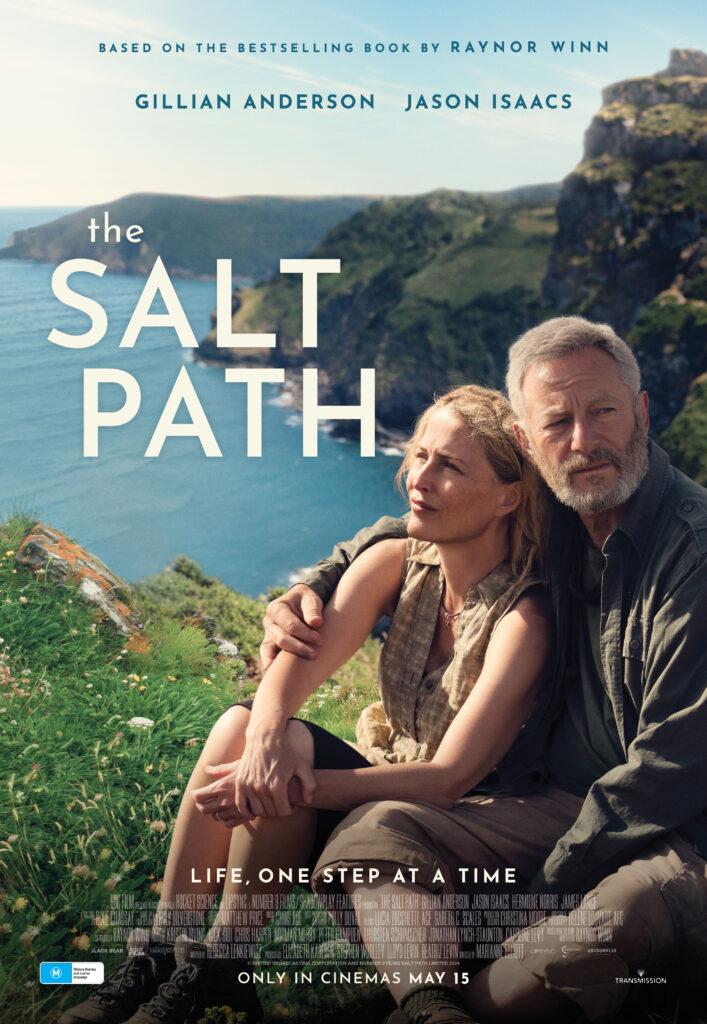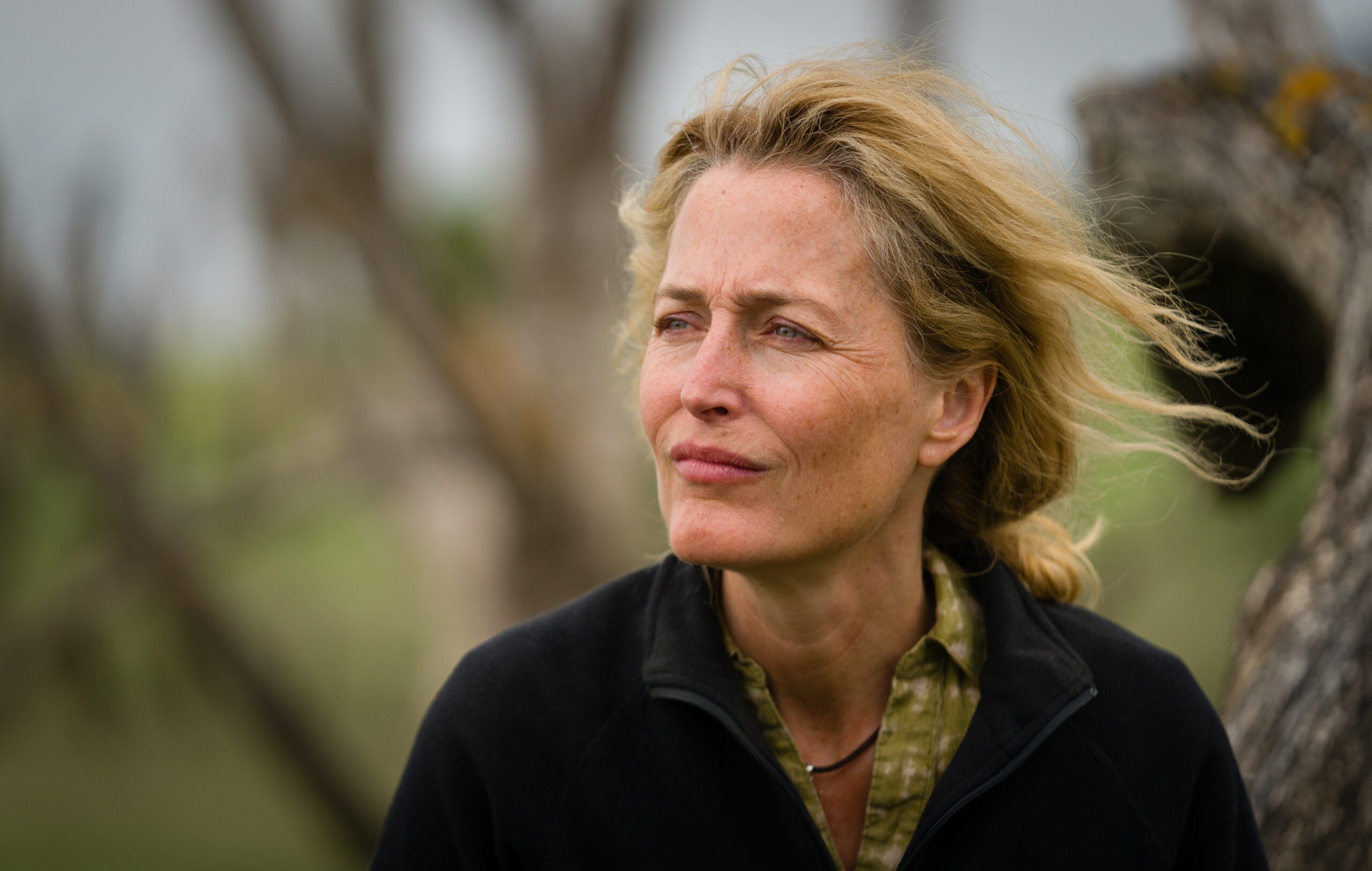Moth (Jason Isaacs) and Raynor (Gillian Anderson) are a married couple taking a long walk along the coastline. At first glance, it might seem like they are on a much-needed holiday, even though they carry very little in their bags. But as they continue their walk, flashbacks reveal how Moth and Raynor ended up in this position. The audience discovers that Moth and Raynor are in a difficult situation after having to appear in court, resulting in the loss of their home and all its contents. Compounding their troubles, Moth is suffering from a rare disease that will eventually affect his nerves and brain and will require extensive care. Despite these significant challenges, they discover that no support is available.
As they are on the verge of losing their home forever, Moth and Raynor are inspired by a book that encourages them to take a long walk. A walk around the coastline will give them time to think, and after all, it seems they have nothing left to lose. Equipped with a tent, some clothes, and a small amount of money, Moth and Raynor set out on this new walking journey. As they trek, they encounter various challenges, including inclement weather, a lack of water, financial struggles for food, and health-related hurdles. Will Moth and Raynor be able to support each other and survive the journey? More importantly, will this long walk give them peace or resolution?
The Salt Path is a drama and tragedy film directed by Marianne Elliott. She is known for her work on National Theatre Live: All’s Well That Ends Well and for co-directing Alan Bennett’s Talking Heads. Interestingly, The Salt Path is adapted from a well-known memoir by Raynor Winn, which was released in 2018.
Jason Issacs and Gillian Anderson have excellent chemistry as Moth and Raynor, making their portrayal of a married couple feel authentic. While their characters don’t always make the best decisions, especially regarding their relationship, the most touching aspect is their ability to support and uplift one another through various challenges. The film has breathtaking scenes and stunning locations that I found truly rewarding to experience on the big screen.
I loved the pacing of the film’s opening, and I was unaware of the true story behind it. Watching Moth and Raynor lose their home was simply devastating and heartbreaking, especially since they were unable to secure any support and ultimately chose to live a life of homelessness. The second act continues to be compelling as the characters grow together, and I found myself curious about how their journey would conclude by the film’s end. Unfortunately, the third act felt messier than the rest of the film. While some subplots and sidesteps may have happened in real life, these subplots made the film less engaging and detracted from the main characters. Additionally, the pacing felt like a long drag at this point. The film’s outcomes and conclusion also felt rushed, which was unexpected.
Overall, The Salt Path is a solid drama with heavy themes and gripping tragedy. The film stars Jason Isaacs and Gillian Anderson, who worked beautifully together, delivering genuine and compelling performances from start to finish. Although I wasn’t familiar with the actual story or memoir on which the film is based, I found myself highly curious and invested in the heavy narrative. Locations and visuals are also stunning to see on the big screen. The film’s opening and second act are impressive; however, the third act feels dragged out and introduces subplots that I found unnecessary or not integral to the main story. While the conclusions are touching and welcome, they also come across as rushed, leading to a finale that I wish had been more impactful or presented in a far stronger manner.
The Salt Path (2024) will be available in Australian Cinemas from May 15th!



Published: 13th May 2025
Written by: Peter Walkden

CONNECT WITH PETER WALKDEN:

FOLLOW US ON INSTAGRAM:
@walkdenentertainment / @walkdenpublicity

FOLLOW US ON LETTERBOXD:
@Peter_Walkden



THANK YOU FOR VISITING!

0 Comments